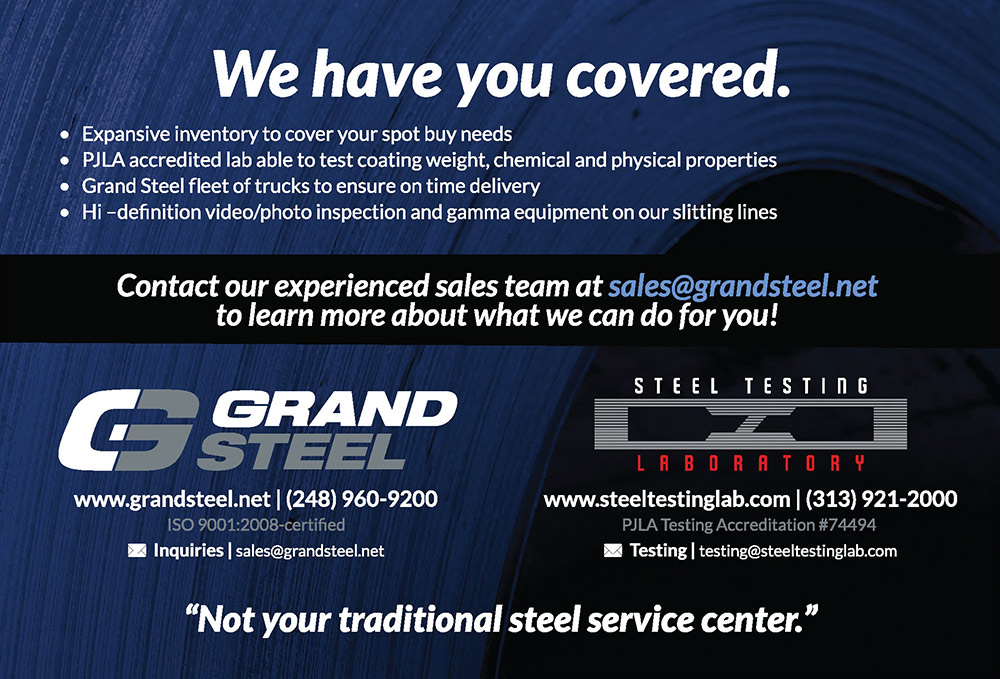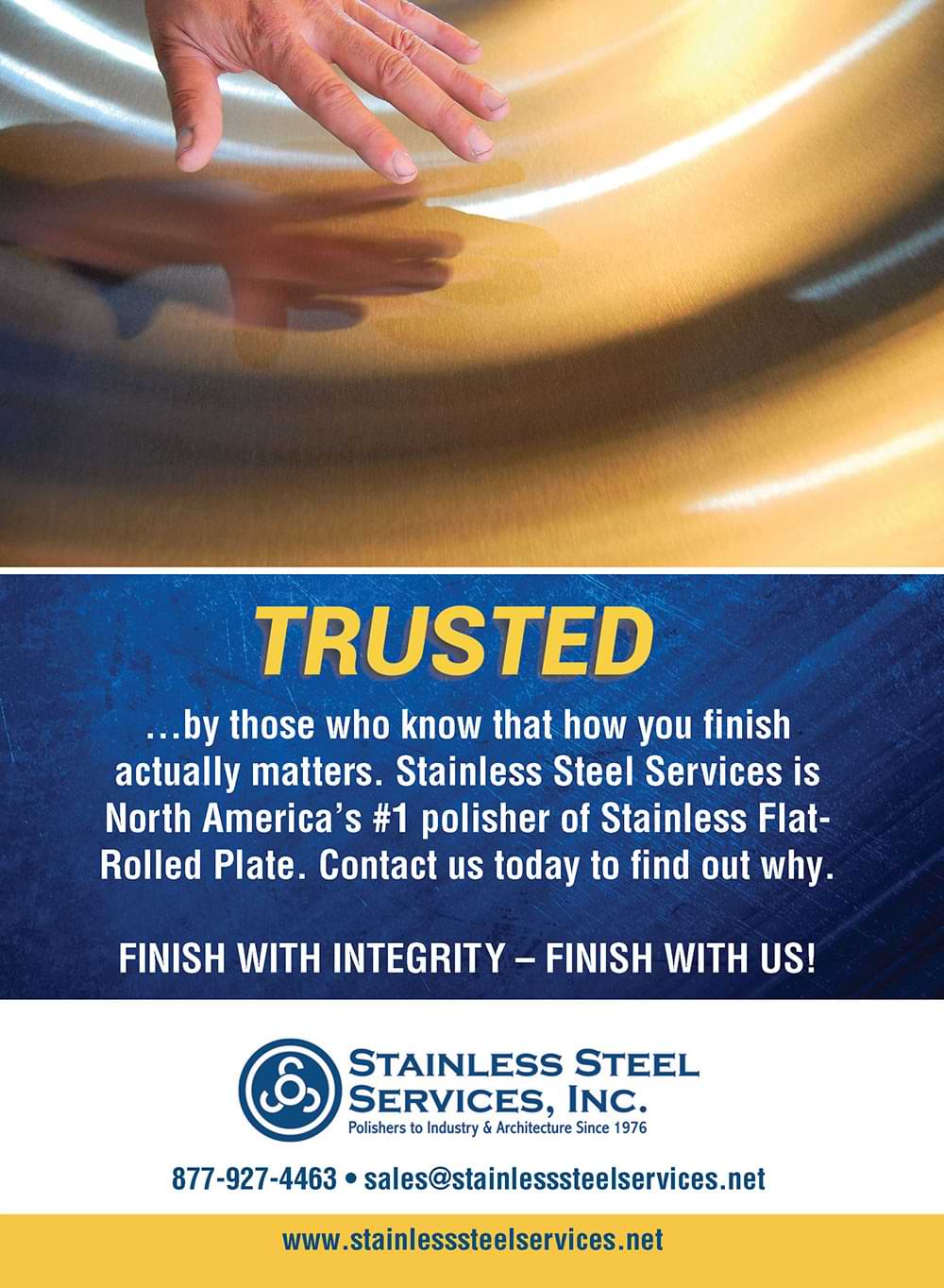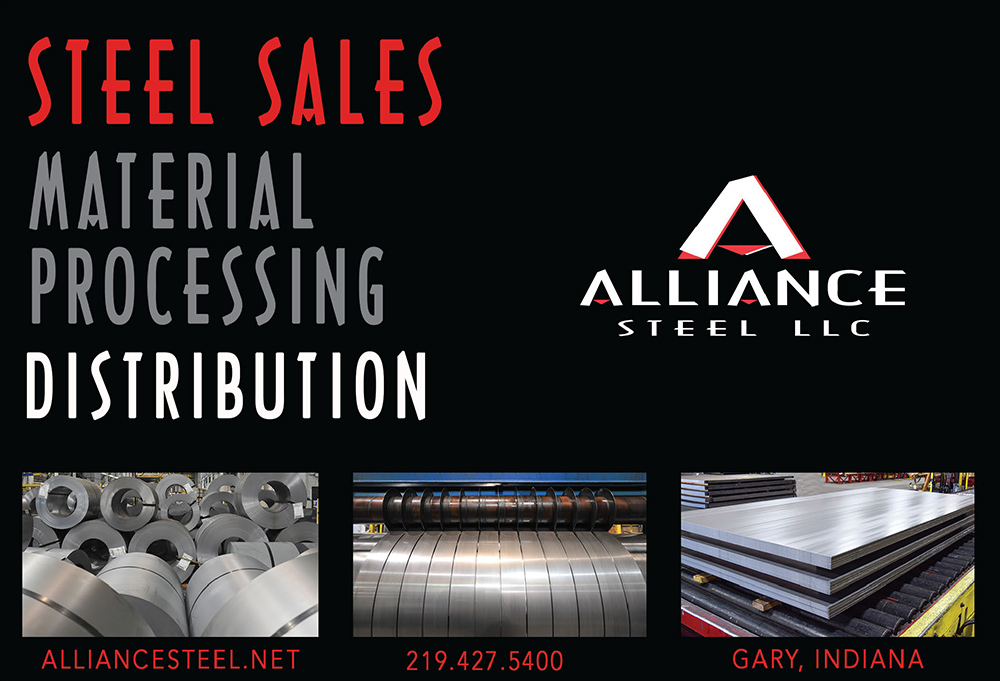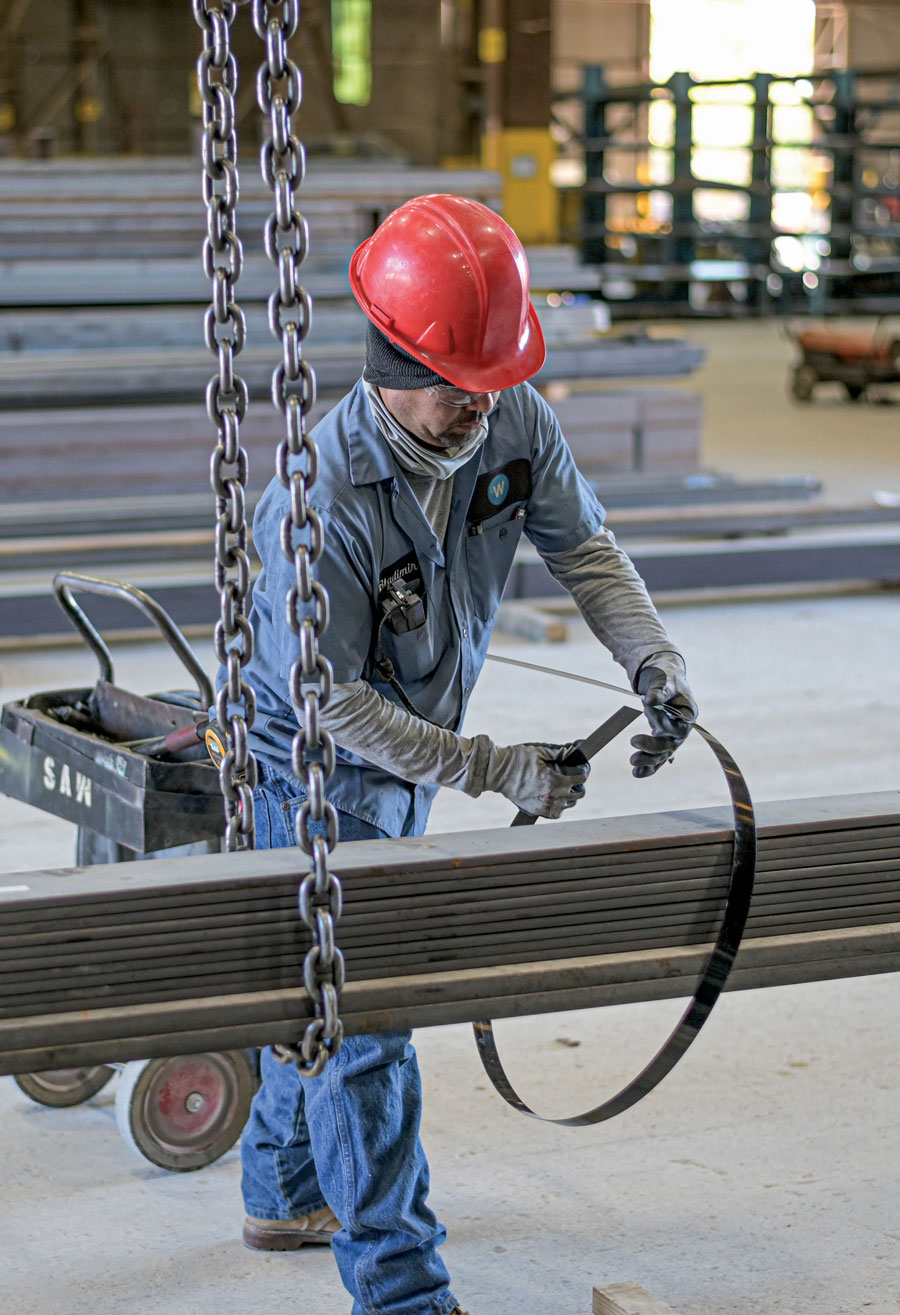
ervice centers and their clients adopted a variety of methods to manage through an unpredictable cycle over the past couple years. A pandemic struck the global economy in March 2020, shutting down or slowing production of parts, components and systems for consumer goods, idling active building sites and other activities that require metals. Although this shutdown period was brief in many parts of the world, it disrupted the supply chain far more dramatically than one might have expected, in part because people were wary of returning to work during COVID, even as pent-up demand—for everything—exploded.
“Fortunately, we have had a great supply base that took care of us and got us through bottlenecks of supply,” says Eric Letz, CEO of Willbanks Metals, Fort Worth, Texas.
Periodically, the company uses the hot-rolled coil futures market to index its own pricing. More recently, it chose to analyze its inventory position frequently and focus on customer needs even more closely in order to make wise purchasing decisions. “We provide transparency,” says Eric Letz. That includes using a price index for contract business. “We tie a lot of our sales to futures contracts. But we also make sure to understand what customers are forecasting and match our inventories to meet their needs.”
Willbanks Metals is regularly “balancing our inventory position, based on what customers need from us now and even nine months in advance, so we are ahead of the curve. We are actually stocking less than we did in 2019 but we are still selling more,” he notes.
Ryan Letz, chief commercial officer, says that where Willbanks Metals differentiates from general-line service centers is “we don’t hope and pray the inventory will be sold. We limit inventory price risk by selling steel to our customers before we purchase from our suppliers. We get as close to them as possible. We attempt to get forecasts from our customers and sell months in advance so our margin is somewhat protected.”
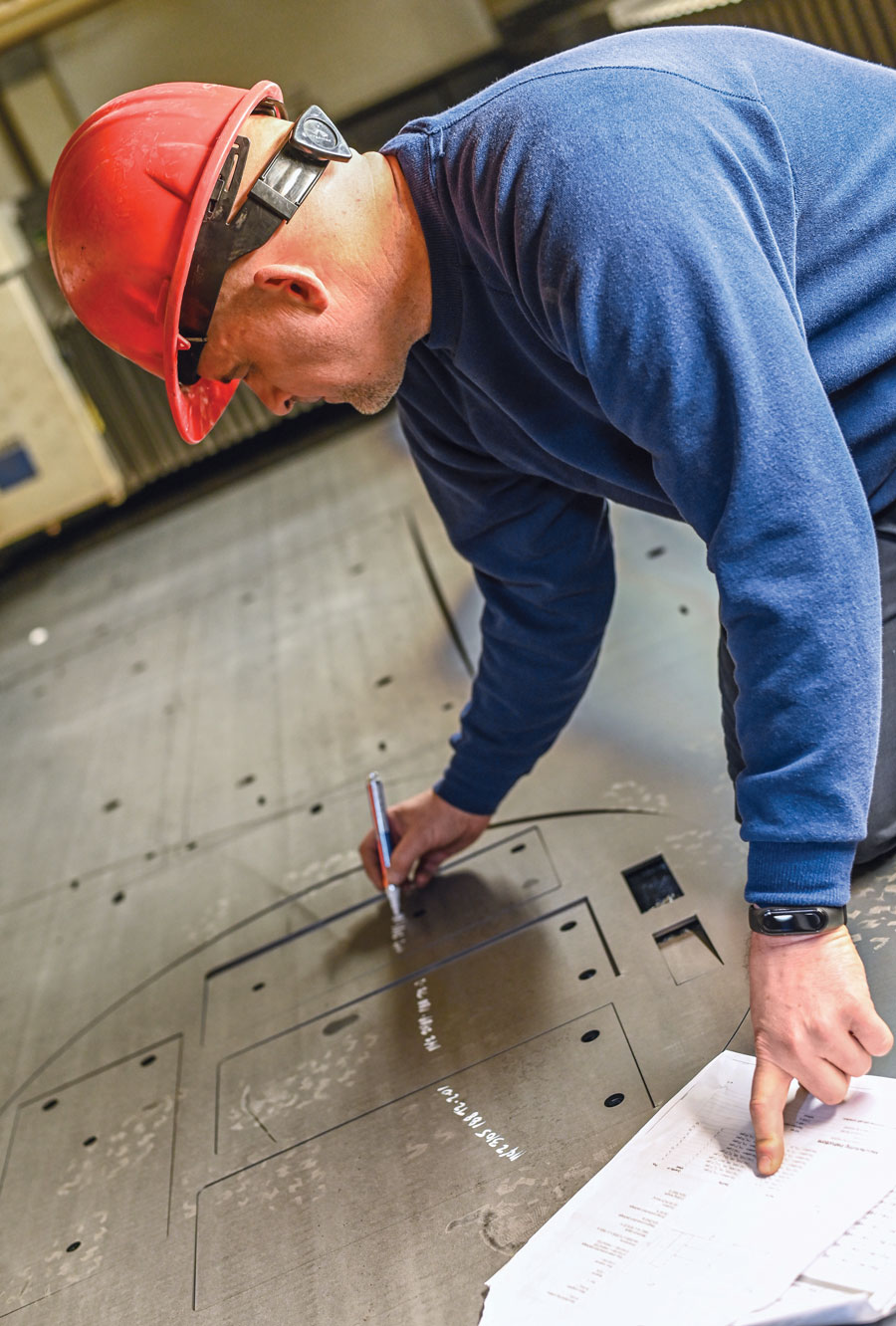
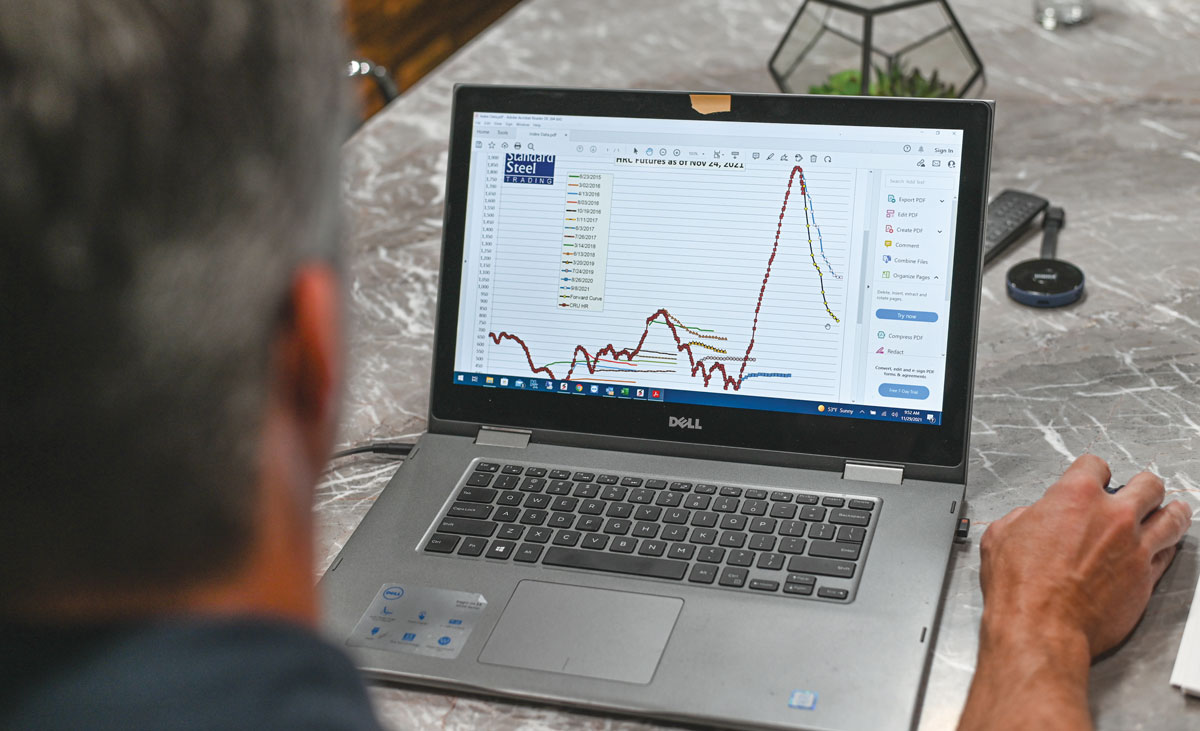
Everyone from the corner bodega to multinational corporations has had to reckon with the fact that people want higher compensation and that, for some jobs, the number of people who have the proper skills is limited.
To attract and retain good employees, Willbanks Metals has added some perks. “For the first time [during 2020], we added referral bonuses and retention bonuses,” Eric Letz says. The company also signed up with a cloud software system called rewardco.com, which provides tailored programs to improve engagement for employees. Through the site, Willbanks uses “a point system to recognize individual performance and group performance. We also track key performance indicators on machinery like attendance, efficiency, quality and on-time delivery.”
He explains that an employee is the attendant on each machine. “We allocate points and whoever hits the target” receives points and can convert these points to real money to spend with online retailers.
“The employees love it,” Eric Letz says. “We set up kiosks, and there’s an app for mobile devices. Someone with perfect attendance receives the highest amount of bonus points. We congratulate them personally, and they can convert points to cash.”
The point system “stresses the things we want: quality and safety and perfect attendance.” Over the course of the year, the point system can become a healthy portion of an employee’s income stream. “It’s a great benefit,” he says.
In addition, Willbanks increased its sign-on and retention bonuses, especially for skilled positions. As Eric Letz explains, “it is hard to find CDL truck drivers, welders and press brake operators. These tools help us identify people and keep them on. There is no doubt that these programs are worth the expense. We are in a market where there are hiring signs on every door,” he says.
 we are in a market where there are hiring signs on every door.
we are in a market where there are hiring signs on every door. 
willbanks metals
Each year, Willbanks Metals reinvests some portion of its profits into the business, such as upgrading or purchasing new equipment. In 2021, “because profits have been above average, we decided to upgrade a few machines,” Ryan Letz says. “We bought the largest Trumpf laser available, and it will be installed during January.
“We are also adding a press brake. That should also be installed shortly. We bought a Red Bud stretcher-leveler to be installed during 2022. It [features] amazing technology and takes our quality up with a memory-free, ultra-flat product. Those are the three biggest reinvestments,” he says.
“Our other option is to open up a new location or buy a company. We are in the process of examining both. We might open a greenfield location and we might purchase another company,” says Ryan Letz.
In the service center space, bankers or potential buyers trying to assess market value for a company typically look at normalized EBITDA, “but the norm is out the door so it’s a massive struggle to understand the actual value,” Eric Letz says. “In our microcosm, what happened with Russel Metals buying Boyd Metals [for $110 million] clearly indicated they are using a multiple of 2021 earnings.
“That is a clear indication that current earnings are part of the math,” he continues. “We need one or two similar transactions to build that trend. It’s complicated this year especially. The value in December is changed quite a bit from January.”
He says there are “plenty” of companies for sale, meaning, “I think we will see many announcements made.”
Selling would be an option, too, but a delicate decision. “This company has been in our family 47 years,” Eric Letz says. “We talk to our dad about it. It’s a situation where if the stars align with the right price and right buyer, and it makes sense across the board,” the owners might sell. However, “given the complexity of what’s happened in the market this year, it’s difficult to apply a value that everyone can agree to.”
While such discussions take place, the brothers continually watch the market. “Ryan and I have been at this for over 20 years, and we are shocked by how strong demand has been in spite of higher prices,” Eric Letz says. “We like the prospects for the next three to five years. This cycle is great.”
